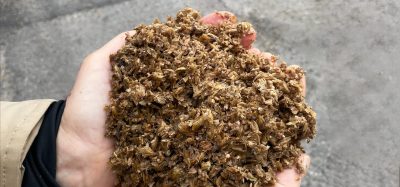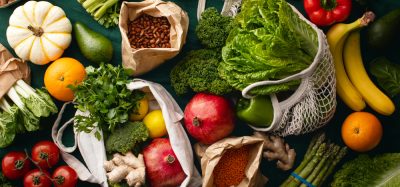Could rapeseed outshine soy as plant-based protein?
- Like
- Digg
- Del
- Tumblr
- VKontakte
- Buffer
- Love This
- Odnoklassniki
- Meneame
- Blogger
- Amazon
- Yahoo Mail
- Gmail
- AOL
- Newsvine
- HackerNews
- Evernote
- MySpace
- Mail.ru
- Viadeo
- Line
- Comments
- Yummly
- SMS
- Viber
- Telegram
- Subscribe
- Skype
- Facebook Messenger
- Kakao
- LiveJournal
- Yammer
- Edgar
- Fintel
- Mix
- Instapaper
- Copy Link
Posted: 6 October 2020 | Mandy Parrett (New Food) | No comments yet
Scientists in Germany have identified that rapeseed has the potential to replace soy as the best plant-based source of protein for humans.


In an ongoing study at Martin Luther University Halle-Wittenberg (MLU), scientists have been investigating the nutritional composition of rapeseed protein and analysing its effects when consumed.
Protein is essential to ensure a healthy balanced diet and market demand for this nutrient is also being fuelled by fitness and training trends. While meat and fish are known sources of high-quality absorbable protein, their associated sustainability and welfare issues have caused increased interest in finding suitable quality plant sources.
One of the world’s most popular plant proteins is soy. “Soy is generally considered the best source of plant protein as it contains a particularly beneficial composition of amino acids,” explained Professor Gabriele Stangl from the Institute of Agricultural and Nutritional Sciences at MLU.
However, the drive for increased soy cultivation is a major cause of much deforestation and so alternative plant proteins are worth investigating.
The MLU team investigated whether rapeseed, which has a comparable composition of amino acids to soy, could be a good alternative. Rapeseed also contains phytochemicals, which could have beneficial effects on health, according to Stangl. “So far, only a few data on the effect of rapeseed protein intake in humans had been available,” adds the scientist.
Rapeseed has the advantage
With comparable nutrient compositions, rapeseed has a key advantage over soy: it is already cultivated in Europe and the protein-rich by-products of rapeseed oil production, which are currently used for animal feed, could be used as ingredients for new food products.
In a study with 20 participants, the team investigated the effect of ingested rapeseed and soy proteins on human metabolism. Prior to commencement of the study, the participants were asked to document their diets for several days. They were then invited to eat a specifically prepared meal on three separate days: noodles with tomato sauce, that either contained no additional protein, or was enriched with soy or rapeseed protein.
After each meal, blood was tested at regular intervals over a six-hour period. “By using this study design, we were able to assess the acute metabolic response of each study participant to the dietary treatments.” said Stangl.
Nutritionist Christian Volk from MLU summarised the study’s findings: “The rapeseed protein induced comparable effects on metabolic parameters and cardiovascular risk factors as soy protein. Rapeseed even produced a slightly more beneficial insulin response in the body”.
Another benefit was that the participants reported a longer feeling of satiety after eating the rapeseed protein. “To conclude, rapeseed appears to be a valuable alternative to soy in the human diet,” says Volk.
One caveat, however, was highlighted: “Rapeseed protein, in contrast to soy protein, has a mustard flavour,” says Volk, indicating that rapeseed would be more suitable for the production of savoury foods rather than sweet foods.
The study was published in the journal Nutrients.
Related topics
Environment, Health & Nutrition, Ingredients, New product development (NPD), Plant based








